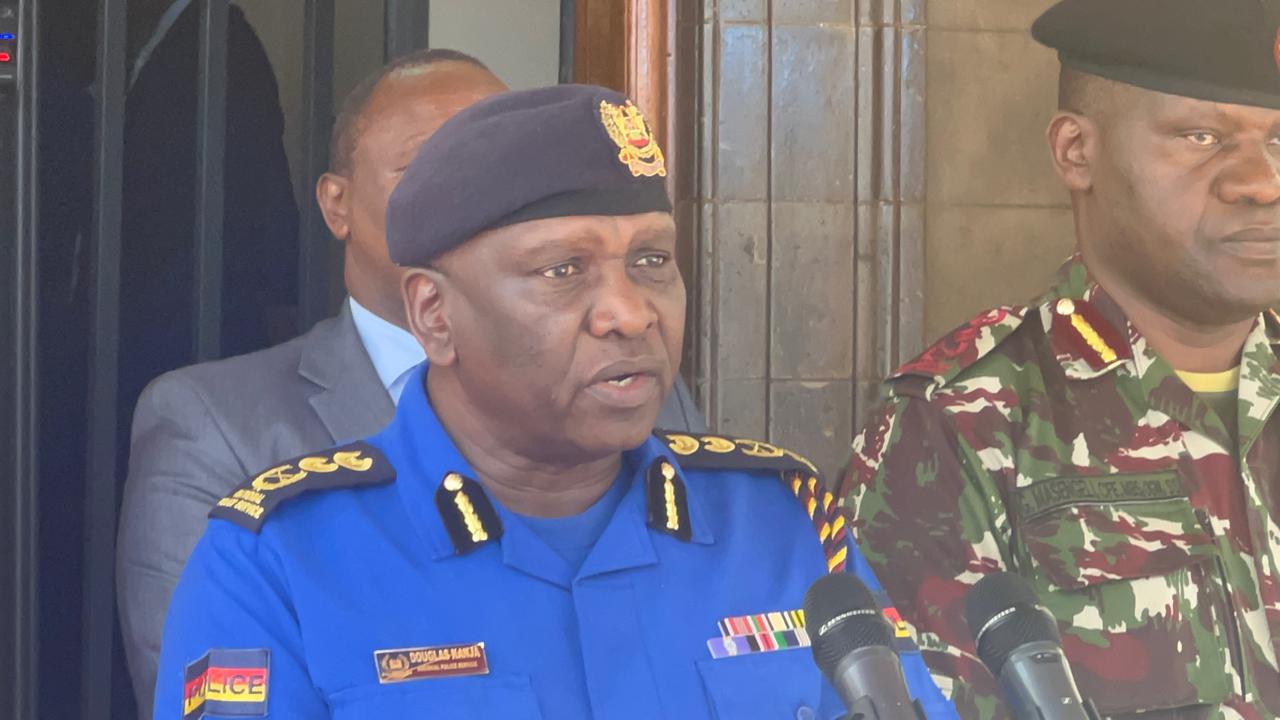

High-ranking police officers will now be held criminally liable for crimes committed by their subordinates.
The High Court on Wednesday agreed with human rights lobbies led by Katiba Institute that sued the Inspector General of Police over last year’s handling of doctors’ protests.
Judge Jairus Ngaah ruled that police bosses will be held liable for unlawful use of force by officers to disperse peaceful demonstrators.
Justice Ngaah further ruled the IGP will be held accountable for any acts of omission by officers under his command and personally held liable for any infringement on the rights of demonstrators.
Under international humanitarian law, the doctrine of command responsibility holds that both police/military and non-military commanders can be held individually accountable should those serving under them fail to uphold the law.
Command responsibility is a form of indirect responsibility based on the commander’s failure to act.
According to the International Commission of Jurists Kenya, command responsibility mandates that not only the officer who directly commits an act but also their supervisors, from the officer in charge of a riot to the officer commanding station, officer commanding police division, all the way up to the Inspector General and the Minister of Interior, are accountable for the actions of their subordinates.
Advocate Leah Aoko, a programmes associate at Utu Wetu Trust human rights lobby, explains that this chain of accountability is essential in preventing abuses and ensuring law enforcement operates within bounds of the law.
“What we are saying is that where an offence has been committed by an officer, we hold the person who gave the orders responsible. For example, I am part of a mission and I went to an area, committed an offence whether it’s sexual assault, my boss is going to be held responsible.’’
“This is very important because we found that in most instances police officers are not willing to disclose their colleagues who have committed offences; so, this concept is internationally recognised and ensures that superiors within the police service are very well aware of what the junior officers are doing”.
She believes successful application of this doctrine can help in ensuring justice for victims of atrocities committed by those who are supposed to protect them.
“This can be very effective if it's applied successfully because police bosses will be aware of what their juniors are doing; because if something wrong happens, they will come looking for them. They will be very keen to ensure that their juniors do not commit crimes. The issue of following orders will come to an end.’’
Utu Wetu Trust executive director Yvonne Oyieke says the doctrine that has been efficient in other jurisdictions is being tested for the first time in Kenya and can lead to convictions, which will in turn bring justice and accountability for those involved.
“Command responsibility under international law has shown itself to be an efficient way of ensuring that international crimes are accounted for. It has the same potential in Kenya by ensuring that survivors get justice,” she explains.
“If you look at the spectrum of what survivors or victims consider to be a just outcome, part of that also includes the recognition of their suffering.”
The system established in the Geneva Conventions of 1949 for repressing grave breaches targets persons who have committed or ordered the commission of such a breach. Persons who by failing to act have allowed a grave breach to happen can also be held criminally liable.
The International Criminal Court distinguishes two kinds of ‘superior’ responsibility.
Article 28 of the Rome Statute stipulates that a military commander or a person effectively acting as a military commander is criminally responsible for crimes within the jurisdiction of the ICC committed by forces or persons under his effective command and control, or effective authority and control, where:
-He/she either knew, or owing to the circumstances should have known, that the forces or persons were committing or about to commit such crimes.
-He/she failed to take all necessary and reasonable measures within his or her power to prevent or repress their commission or to submit the matter to the competent authorities for investigation and prosecution.
Human rights defenders believe that by adhering to these principles, law enforcement can better protect human rights and ensure justice for all.
















